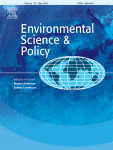Ver ítem
- xmlui.general.dspace_homeCentros Regionales y EEAsCentro Regional CorrientesEEA CorrientesArtículos científicosxmlui.ArtifactBrowser.ItemViewer.trail
- Inicio
- Centros Regionales y EEAs
- Centro Regional Corrientes
- EEA Corrientes
- Artículos científicos
- Ver ítem
It is possible to conciliate policy-driven forestry expansion and “malezales” wetlands conservation in Argentina?
Resumen
Malezales are hydrophytic grasslands restricted to the province of Corrientes, northeastern Argentina, being considered natural wetlands. Although poorly studied and practically lacking legal protection, which hinders their sustainable management, they are of great economic importance for extensive livestock and forestry industry, in addition to their provision of environmental services and biodiversity. In the last decades, this ecosystem has been the
[ver mas...]
Malezales are hydrophytic grasslands restricted to the province of Corrientes, northeastern Argentina, being considered natural wetlands. Although poorly studied and practically lacking legal protection, which hinders their sustainable management, they are of great economic importance for extensive livestock and forestry industry, in addition to their provision of environmental services and biodiversity. In the last decades, this ecosystem has been the stage of a process of expansion of planted forests, stimulated by policies to encourage afforestation. The present study aimed to estimate and zoning forest expansion over malezales for the year 2050, as well as to evaluate the sustainability of the forest expansion process, considering its conflicts with priority areas for recovery and conservation of the ecosystem. We presented an innovative approach to improve the land use planning in regions with multiple policy-driven conflicts among land uses. Remote sensing tools and geographic information systems were used to map (QGIS), model, project and zone (IDRISI) forestry expansion and its conflicts with areas of environmental interest. The results showed that forest expansion policies caused an intense process of replacing malezales by planted forests, intensely affecting agriculture and livestock and areas of ecological interest. Predictive modeling suggests a worsening of this scenario in 2050. The proposed zoning after conflict identification shows that it is possible to conciliate recovery, conservation and sustainable afforestation of malezales, and serves as a subsidy for planning and decision making. However, its application must be conditioned to further discussions between the actors involved, considering their local and specific needs.
[Cerrar]

Autor
Pereira, Luís Flávio;
Oliveira, Raphael Rivadávia Mendes;
Kurtz, Ditmar Bernardo;
Castro, Jackeline de Siqueira;
Santos, Vitor Juste dos;
Alves, Sabrina do Carmo;
Calijuri, Maria Lúcia;
Fuente
Environmental Science & Policy 142 : 153-163 (April 2023)
Fecha
2023-04
Editorial
Elsevier
ISSN
1873-6416
1462-9011
1462-9011
Formato
pdf
Tipo de documento
artículo
Palabras Claves
Derechos de acceso
Restringido
 Excepto donde se diga explicitamente, este item se publica bajo la siguiente descripción: Creative Commons Attribution-NonCommercial-ShareAlike 2.5 Unported (CC BY-NC-SA 2.5)
Excepto donde se diga explicitamente, este item se publica bajo la siguiente descripción: Creative Commons Attribution-NonCommercial-ShareAlike 2.5 Unported (CC BY-NC-SA 2.5)


